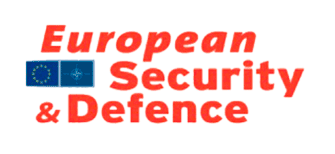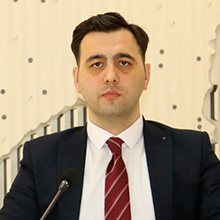
The SCO Samarkand Summit: Dialogue and Cooperation in an Interconnected World  By Shavkat Mirziyoyev, President of the Republic of Uzbekistan By Shavkat Mirziyoyev, President of the Republic of Uzbekistan
Uzbekistan’s chairmanship in the Shanghai Cooperation Organization (SCO) has fallen on a dynamic period, fraught with various events and trends – the period of the «historical rift», when one era comes to an end and another begins – thus far unpredictable and unknown.
The modern system of international cooperation, based on the universal principles and norms, begins to falter. One of the main reasons for this is a deep crisis of trust at the global level, which, in turn, provokes a geopolitical confrontation and the risk of reviving the bloc thinking stereotypes. This process of mutual alienation complicates the return of the world economy to its former course of development and the restoration of global supply chains.
READ MORE
- EGF Editor |
Published on EGF: 12.09.2022
| External Relations
-
Role of Shanghai Cooperation Organisation Goes beyond Managing Russia-China Relations in Central Asia  By Benyamin POGHOSYAN, PhD, Chairman, Center for Political and Economic Strategic Studies By Benyamin POGHOSYAN, PhD, Chairman, Center for Political and Economic Strategic Studies
As the world comes closer to multi-polarity, the role of such organizations as SCO will grow further. Russia and China will seek to use them as a counterbalance to western dominated international political and economic organizations, such as G7, the EU, the World Bank and IMF. In the present context of emerging great power competition, the SCO started to be viewed less as a tool to manage Russia – China relations in Central Asia, or counter terrorist threats from Afghanistan, and more as a significant grouping of non-western powers in the emerging multipolar world.
The war in Ukraine has given a new impetus to the discussions about the transformation of the global order. Experts, academicians, and politicians have been debating the potential counter-weights of the emerging post-cold war order since the global financial crisis of 2008. There were different opinions about what the new world order could be like. Among the options discussed were a new bipolar world dominated by the US-China rivalry, a multipolar world where key players – the US, China, Russia, India, EU, and perhaps others – will be in a constant fight for influence and prestige, or complete chaos with no rules and no dominant players, opening the prospect of returning humankind back to a geopolitical jungle. READ MORE
- EGF Editor |
Published on EGF: 09.09.2022
| External Relations
-
Why is Baku Waging a “War of Words” against Tehran?  By Yeghia TASHJIAN, Beirut-based regional analyst and researcher, columnist, "The Armenian Weekly” By Yeghia TASHJIAN, Beirut-based regional analyst and researcher, columnist, "The Armenian Weekly”
During a meeting with Russian President Vladimir Putin and Turkish President Recep Tayyip Erdogan in Tehran on July 19, the Iranian Supreme Leader Ali Khamenei warned against blocking the Armenian-Iranian border, stating, “If there is an effort to block the border between Iran and Armenia, the Islamic Republic will oppose it because this border has been a communication route for thousands of years.” After this warning, Turkish and Azerbaijani media started paying more attention to Iranian officials and launched a “war of words.” In response to media provocations and threats toward Armenia launched by Azerbaijan, Iran facilitated the appointment of a Consulate General in Syunik to redraw its “red lines” in the South Caucasus. READ MORE
- EGF Editor |
Published on EGF: 09.09.2022
| External Relations
-
Turkey Imposes Obstacles to Nordic Countries’ NATO Aspirations  By Eugene KOGAN, Tbilisi-based defence and security expert By Eugene KOGAN, Tbilisi-based defence and security expert
Sweden and Finland have long followed a policy of military neutrality so as not to incur Russia’s wrath. However, the unprovoked Russian war against Ukraine has changed the attitude of these countries. Both Sweden and Finland announced their wish to join the North Atlantic Alliance in mid-May. Then, out of the blue, came obstruction from Turkey with the claim that both countries were financing terror and supporting Kurdish “terrorist” groups that Turkey has been trying to eliminate for the last 40 years or so. One of the major handicaps of the North Atlantic Treaty was and still is the omission of information about a NATO country blocking the participation of non-NATO states in NATO activities or the joining of new NATO members into the Alliance. Admission of new NATO members requires the unanimous consent of all members and the subsequent ratification of protocols by their respective parliaments. READ MORE.
- EGF Editor |
Published on EGF: 09.09.2022
| External Relations
-
What Is Expected after the Erdogan-Putin Summit?  By Yeghia TASHJIAN, Beirut-based regional analyst and researcher, columnist, "The Armenian Weekly” By Yeghia TASHJIAN, Beirut-based regional analyst and researcher, columnist, "The Armenian Weekly”
On August 5, Turkish President Recep Tayyip Erdoğan and Russian President Vladimir Putin had a four-hour meeting in Russia to discuss bilateral ties and regional issues. The Sochi summit comes after Ankara scored a diplomatic victory by helping broker a grain deal between Turkey, Ukraine and Russia that has eased global food crisis fears and growing concerns of possible Turkish military escalation against the Kurds in Northern Syria. What implication will the summit have on the region? READ MORE
- EGF Editor |
Published on EGF: 02.09.2022
| External Relations
-
Central Asians Are Expanding Strategic Relations with Azerbaijan  By Ayaz MUSEYIBOV, Adjunct lecturer at Azerbaijan Technical University
By Ayaz MUSEYIBOV, Adjunct lecturer at Azerbaijan Technical University
In the wake of the recent global geopolitical challenges including the war in Europe, instability in Afghanistan, and many other rapid global changes, Central Asian countries diversify and expand their economic, strategic, and political relations. As Azerbaijan is emerging as a new energy and logistic hub in Euro-Asian value chains, economic relations with Azerbaijan are crucial in regional logistics and energy spheres. Therefore, on April 20th and June 21st, 2022, Kyrgyzstan and Uzbekistan signed the declarations of strategic partnerships with Azerbaijan, respectively. Thereafter, Kazakhstan and Turkmenistan signed cooperation documents with Azerbaijan covering various directions. READ MORE
- EGF Editor |
Published on EGF: 02.09.2022
| External Relations
-
Restoration of Military Balance between Armenia and Azerbaijan  By Benyamin POGHOSYAN, PhD, Chairman, Center for Political and Economic Strategic Studies By Benyamin POGHOSYAN, PhD, Chairman, Center for Political and Economic Strategic Studies
Almost every war, short or long, ends at the negotiation table. There are exceptions to this rule, like World War II, which ended with the capitulation of Nazi Germany and Japan. However, the capitulation of one side is an unlikely scenario for the Nagorno Karabakh conflict. Azerbaijan suffered significant defeat during the first Karabakh war in the early 1990s but did not sign the capitulation. Armenia faced almost the same fate in 2020, and while Azerbaijan and some experts in Armenia argue that the November 10, 2020, trilateral statement was a capitulation for Armenia, there was no formal capitulation. Since the end of the 2020 Karabakh war, Armenia and Azerbaijan have been negotiating to reach a long-lasting solution. Russia, and since mid-2021, the EU have acted as primary mediators, organizing several high-level summits and hectic behind-the-scenes actions to facilitate the process. READ MORE
- EGF Editor |
Published on EGF: 02.09.2022
| Security
-
The Future of the China-US-Russia Triangle after Pelosi's visit to Taiwan  By Benyamin POGHOSYAN, PhD, Chairman, Center for Political and Economic Strategic Studies By Benyamin POGHOSYAN, PhD, Chairman, Center for Political and Economic Strategic Studies
Since February 24, 2022, the international community's focus was concentrated entirely on the war in Ukraine and the growing Russia – West confrontation. It seemed that nothing could change the situation until the end of hostilities in Ukraine. However, on August 2 and 3, almost everyone’s attention shifted from Ukraine to Taiwan. As the Speaker of the US House of Representatives, Nancy Pelosi, stated her intention to visit Taiwan, up to half a million people were watching the trajectory of her plane on air flight tracking sites. The negative reaction of China, including the warning of President Xi during his conversation with President Biden that those who played with fire would be perished by it, created hype around this visit. READ MORE
- EGF Editor |
Published on EGF: 10.08.2022
| External Relations
-
Will Iran fight Azerbaijan if Baku seeks to invade Syunik?  By Benyamin POGHOSYAN, PhD, Chairman, Center for Political and Economic Strategic Studies By Benyamin POGHOSYAN, PhD, Chairman, Center for Political and Economic Strategic Studies
In the last 10 days, the most discussed issue amongst Armenian media, experts and political circles was the statement of Iran’s Supreme Leader during his meetings with the Russian and Turkish presidents held in Tehran. The presidents of Russia, Iran and Turkey gathered together to discuss the future of Syria in the Astana format amidst the ongoing war in Ukraine and complete rupture of Russia-West relations. Few could imagine that the Supreme Leader would mention Armenia and, in particular, the Armenia-Iran border during the summit. However, the Iranian message was clear: Iran will not tolerate the closure of the Armenia-Iran border. READ MORE
- EGF Editor |
Published on EGF: 01.08.2022
| External Relations
-
The South Caucasus and the “Great Game” of Energy Security  By Yeghia TASHJIAN, Beirut-based regional analyst and researcher, columnist, "The Armenian Weekly” By Yeghia TASHJIAN, Beirut-based regional analyst and researcher, columnist, "The Armenian Weekly”
The “Great Game” was a political and diplomatic confrontation that existed for most of the 19th century and the beginning of the 20th century between the British Empire and the Russian Empire over Afghanistan and Central Asia, aiming to control trade routes in India. Almost a century later, with the dissolution of the Soviet Union, the “Game” returned, and a fierce competition arose between the Russians and the Americans and their Western allies to control the oil and gas fields and pipelines in the South Caucasus. READ MORE
- EGF Editor |
Published on EGF: 01.08.2022
| Security
-
|
|
